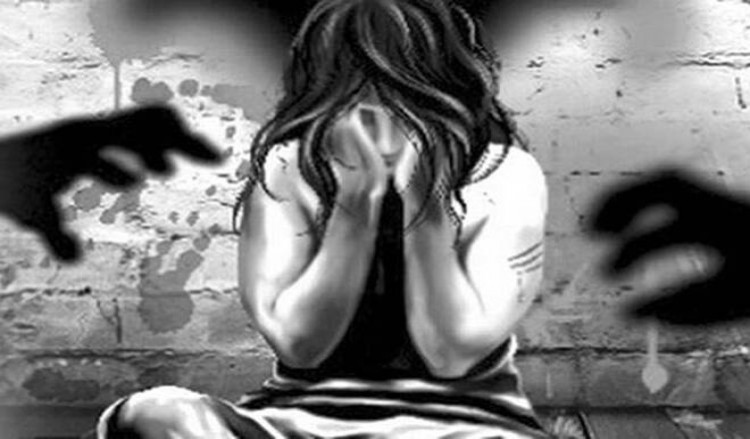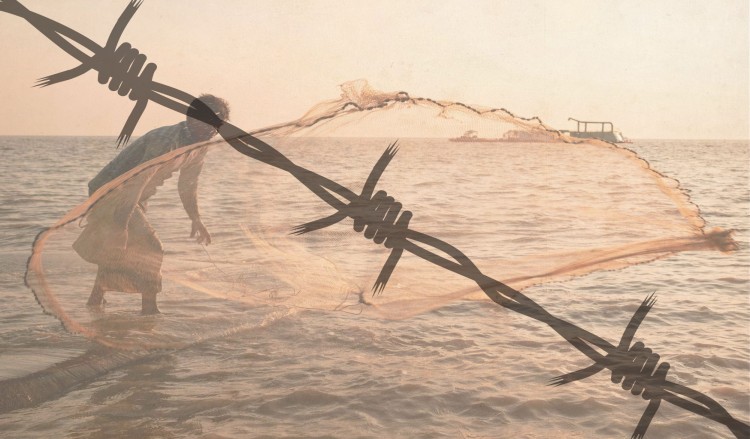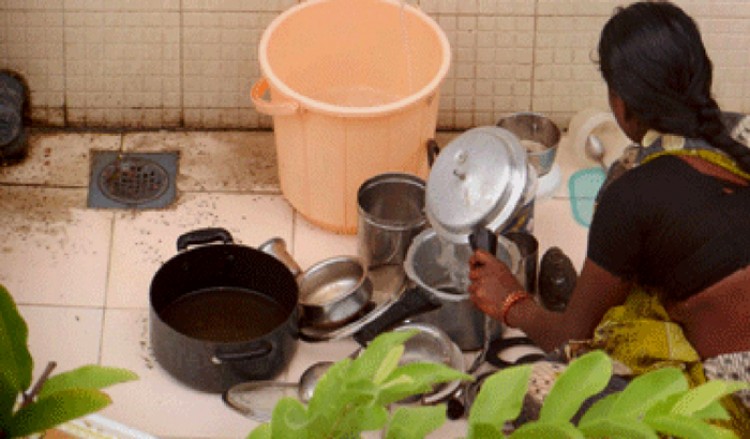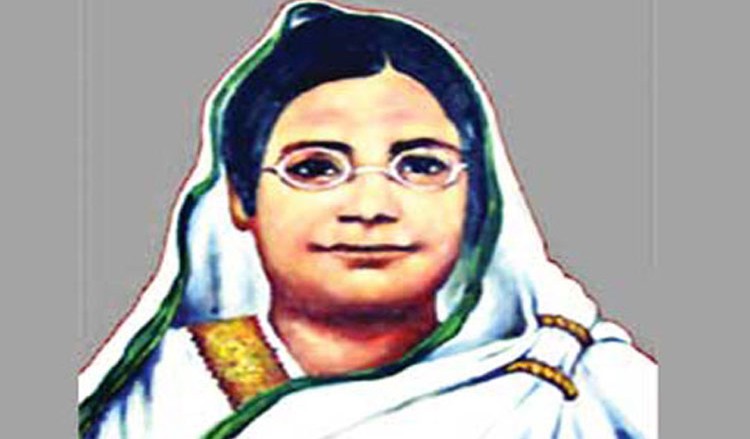- 20 November, 2020
- 0 Comment(s)
- 1263 view(s)
- লিখেছেন : Maitree Devi
Over the last two months we have seen mass movements against sexual violence against women erupt across South Asia (Bangladesh, India, Pakistan). These movements and rage indicate even today how women have been objectified, facing misogyny and how nation-states are unable to ensure women’s safety, security, freedom and autonomy. Further, the commonalities of women’s experiences across borders also prove the failing of the governments and states ensuring the equal citizenship of women. The widespread frustration and disappointment with legal battles, along with the steadily increasing numbers of women's brutal sexual assault are forcing women to take to the streets and imagine mass movements against violence in different ways.
In the context of Bangladesh, protests erupted after a video of a woman from a marginalised community in Noakhali being attacked, stripped and sexually assaulted went viral. The perpetrators were sexually assaulting the woman for over a year while filming her, and threatened to release the video online if she raised her voice. The woman told the media that the men had filmed the assault and then threatened for over a month to release the video in an effort to extort money from her and to compel her to comply with their demands for sex. When she resisted, they released the video. Protestors have been criticising the government for the high numbers of rape and low numbers of conviction rates in the country, along with calling out the culture of impunity for perpetrators. 632 rape cases were reported in Bangladesh in the last 4 months, indicating a huge spike due to the coronavirus pandemic, revealing the gendered aspects of the lockdown, which proves the government’s utter failure to address an alarming rise in sexual violence against women and girls.
Eight men have been arrested in the case. But protesters called for the government to finally take the country’s sexual assault problem seriously. According to Ain o Salish Kendra (a renowned Human and Women Rights Organisation), 907 women or girls were raped in just the first nine months of 2020. Over 200 of these cases were gang rape. They have argued that since these numbers are based on media reports and most survivors do not report assault, they most likely capture only a small fraction of the true number of cases of sexual violence against women and girls in Bangladesh. The organization further stated that only in 3% of rape incidents the society finally see a verdict. However, in 97% of cases, the lengthy judicial procedures, has been observed. During the long judicial steps, most of the victims lose their interest and effort to run the cases. In some cases, criminals get interim bail misusing power and illegal money. Underlining the current trend of the society, in the wake of life threats by the offenders, rape survivors in many cases even stay silent.
In 2018, the Bangladesh High Court ruled that police had delayed recording the complaint of a woman who was gang raped on a microbus in Dhaka in 2015, and issued guidelines for handling rape cases. These included taking the victim’s statement in the presence of a social worker, designating female officers at police stations to receive complaints, providing support for victims with disabilities, and criminalizing police failure to register a case without sufficient cause. But these guidelines are rarely followed and there appears to be no mechanism to hold accountable police who ignore them.
Following massive protests earlier this year in response to a case in Dhaka, a High Court ordered the Law Ministry in January to form a commission within 30 days to address the troubling rise of sexual violence in the country, with the aim of producing recommendations by June. However, more than nine months after the order, it is unclear whether the commission is functioning, and it has not produced recommendations. In the meantime, the government has yet to pass long-promised sexual harassment and witness protection laws. Survivors continue to face stigma, and do not have adequate access to psychosocial services when they seek help. The attackers are rarely held to account. The conviction rate for rape in Bangladesh is below 1 percent. A 2013 UN multi-country survey found that among men in Bangladesh who admitted to committing rape, 88 percent of rural respondents and 95 percent of urban respondents said that they had faced no legal consequences. As is often the case, the survivor in the above mentioned case of Noakhali, told the media that she hadn’t felt comfortable approaching the police as she was repeatedly raped and terrorized over the last year.
Moreover, it has been proved most of times that the police frequently have a negative attitude and don’t believe the victim. A lot of police have no knowledge of how to handle gender-based violence cases. In its concluding observations in the most recent report on Bangladesh’s compliance with the Convention on the Elimination of All Forms of Discrimination against Women (CEDAW), the CEDAW Committee found that “existing rules, policies, and plans addressing gender-based violence against women are rarely implemented due to stereotypes and gender bias, and lack of gender sensitivity on the part of law enforcement officials.”
If they are able to file a case, survivors are further deterred by long, drawn out court cases, pressure from public officials and the accused to drop cases, and abusive questioning in court. Lawyers and rights groups have repeatedly called for the repeal of section 155(4) of the Evidence Act 1872, which states that “When a man is prosecuted for rape or an attempt to ravish, it may be shown that the prosecutrix was of generally immoral character.” This provision encourages defense lawyers to denigrate the character of women if they pursue criminal charges, a clear disincentive to survivors to step forward.
It has been argued by the women organisations that these problems are compounded because Bangladesh has no witness protection law, meaning that survivors pursuing legal remedies and those willing to testify on their behalf risk serious threats, harassment, and even death. A Witness Protection Act was drafted by the Bangladesh Law Commission in 2006, but it has yet to be passed into law. Nearly 90 percent of legal practitioners surveyed by the country’s 2018 Justice Audit said that the measures to protect vulnerable witnesses and victims of crime, especially women and girls, were inadequate.
Even though the government has established Women and Children Repression Prevention Tribunals to deliver swift justice, a culture of impunity remains almost undisturbed, which encouraging for perpetrators, and utterly frustrating for the masses. But the aforementioned video gave the people a sense of urgency to raise voice. Though activists have repeatedly called for reform, Bangladesh’s penal code, article 376, which sets out the punishment for rape, specifically excludes marital rape and further fails to provide legal protection to men (sometimes), boys, transgender, hijra or intersex people who are victims of sexual assault.
In 2009, the High Court issued a judgment providing detailed guidelines governing sexual harassment in all workplaces and educational institutions. As stipulated by the guidelines, all workplaces and educational institutions should have dedicated committees to prevent sexual harassment and respond to complaints. Yet over a decade later, these guidelines are rarely implemented, and the government has yet to finalize a draft bill.
The civil society vigorously argued that the Bangladesh government should create the High Court-ordered commission on sexual violence and publicly report its recommendations; provide comprehensive sexuality education in schools, including on the meaning of consent; and provide training to law enforcement and court officials on working with victims of gender-based violence. Further, it has been argued that it should ensure that adequate and accessible resources for psychosocial support are available and accessible and should heed civil society calls to finally pass a sexual harassment bill, provide witness protection, and reform discriminatory legislation.
It is significant to mention that the absence of legal platform is only one aspect of gender discrimination. The other obstacles to safety, security and equality for women are structured in the socio-economic reality of the patriarchal cultural kinship-based ‘private’ and ‘public’ spheres. Violence has been on the rise even after so many laws have been passed throughout South Asia over more than three decades. Feminists and women in South Asia have recognised the inefficiency of the laws passed and they critiqued the existing laws which discriminate against women in their respective countries. These criticisms have been the emphasis of debate within women groups in South Asia and thus remain a significant area for feminist intervention for viable alternatives.
In Bangladesh, it is possible to cite any number of examples where the state could provide neither justice nor closure of the judicial process when it comes to violence against women. The survivor / survivor family's struggle in the bureaucracy of the country’s judicial process. The alarming low percent of conviction rate in rape trials simply affirms the view on the poor outcomes of lawsuits. This can be evidently stated that as long as the state remains anti-poor, anti-minority, and anti-women, it would be a failure to expect much from law and its potential to deliver social justice. The crux of the matter is the myriad vectors of power spread all over our society and institutions in which a misogynistic culture is deeply ingrained.
Regarding the outraged various forms of protests against sexual violence on the above mentioned case, people from of all walks of life gathered in front of the National Museum and Parliament in the capital, and marked by protests – online and on the streets in Bangladesh – against sexual violence, misogyny and dominance of patriarchy. The motivations and demands of the demonstrators may differ greatly, it has mostly viewed as any other unorganised protest. While some simply demand justice for all rape victims, others want nothing short of capital punishment for rapists and abusers, as deterrent act for future.
The protesters began their demonstrations by staging plays, reciting poems and singing songs as a way of demanding justice for rape victims and demanding exemplary punishment of rapists. The protests got under the banner of “Bangladesh against Rape and Injustice.” The protesters said that the government lacked the honesty of courage to admit its failure in prosecuting rape cases. They claimed that none of those who had been raped across the country in the last ten years got justice. It has been repeatedly argued that due to lengthy trials, the rape victims are deprived of justice. Some of the protestors opined that the crime of rape cannot be stopped by only introducing capital punishment. They demanded a clearer definition of rape and reform of the Evidence Act. Shahbagh became the hub for anti-rape songs, poetry recitations, street plays, and slogans. The cultural protest at Shahbagh started with Bangladesh Udichi Shilpi Goshthi’s mass music presentation as they sang Akash Chakraborty's song, "Scream, Girl, Let's See How Far It Goes." Anti-rape slogans were chanted during the intervals between the performances. Young protesters have used innovative tools to reclaim the space for women, transgender and other minority communities and identities in Bangladesh. Moreover, different political, student rights bodies and socio-cultural organisations staged anti-rape demonstrations and rallies across the country. Protesters at these rallies said they would announce stricter programmes like strikes if the government fails to act. Protesters inscribed slogans on their faces, their sarees and clothes and bodies. People from different way of life took to the street slanting "Rage against rape" and "we want freedom." The first day’s protest demonstrations were largely peaceful. But later, a procession, when it was trying to move towards Ganabhaban, was stopped by the police personnel. Student leaders claimed that without any provocation the police beat mercilessly and harassed the participants. They brought out another procession in that evening to protest against the police brutality.
Further, besides protesting on the streets, netizens-especially women-resorted to voicing digital protests through using social media platforms to raise their voice against rape, sexual assault, harassment and torture of women. During mass rally, the protesters placed several other demands, including the formation of women oppression prevention cells in line with a High Court order and ensuring legal action for sermons delivered against women at all events, including religious ones. Hundreds of thousands of women have taken part in a virtual “Female Blackout” to show solidarity with the protesters, to demand justice for the victims and to stop misogynist practices. Some of them are sharing their stories of being objectified, molested, violated and abused to show that sexual violence is part of a woman’s life. Some protesters call for introducing sex education in the school curriculum, more social welfare and employment opportunities for women and making reproductive health products more affordable and accessible.
There is a strong sense of discontent being observed as protesters feel the state has failed to protect the women and deliver justice that creates peace and social confidence. Women’s rights activists have been saying for years that the abuse of power is one of major causes of the culture of impunity for rapists and abusers.
This protest has also generated discourse on misogyny that exists in society. It has been argued strongly that stigmatisation of rape stops women from reporting instances of abuse, thus the culprits go unpunished. The constant victim-blaming prevents in addressing the issue. So, the protesters expressed outrage over how rape is often justified by blaming the crime on the victims’ outfits, their lifestyle, socioeconomic status, religious beliefs and so on.
In response to the rising outcry of protests in the country, the government has announced on 12th October, 2020, the death penalty for rapists. Bangladesh on 13th October finalized capital punishment against rape as the country’s president signed an ordinance approving the promulgation of the existing life-term rigorous imprisonment to death penalty during nationwide anti-rape protests. The decision on the part of the government has generated a heated debate amongst the activists in Bangladesh. Most of this discussion is against the idea of capital punishment on various grounds. A particular strain of this position points to problems in the country’s justice system leading to a very low conviction rate when it comes to rape. Given the rising scale of sexual violence, that there is little correlation between capital punishment and rape. Civil society of the country opined that it is only a tool to placate the pressure from the public than actually preventing rape. The existing evidence points that there are hundreds of thousands of cases pending in the courts without any trial. The anti-rape protesters stressed the importance of family values, reform in education system and speedy government action to prevent violence against women as death penalty alone is not sufficient to stop rape. Further, the protestors and civil society demanded that the government should ensure, woman, and all sexual assault survivors, are treated with dignity and have access to services, and that their right to a fair, timely, independent investigation and adequate legal remedy is respected.
During the protests the slogan of “Mukti chai Rokkha noi!”, which means “We want Liberation, not Protection!”, was raised by women, articulating a politics which breaks through the false band-aid of patriarchal “solution” to violence. It has been argued in the various platforms that in the wake of the Begumganj incident, the emergence of a new activist landscape where citizen participation is seen from small towns to the large cities has been observed. The emergence of a new language, a language that recasts the notion of chastity, the central tool of the patriarchal discourse controlling women's body, has been arisen. While maintaining the demand for implementation of law, strict action against members of state who cover up cases, suppress questioning, help perpetrators and blame victims, the feminist and women’s movements sought a vision of justice that goes beyond state reform and changes oppressive social relations themselves.
Author : Ph.D scholar, Essayist
Photo courtesy : Internet





0 Comments
Post Comment